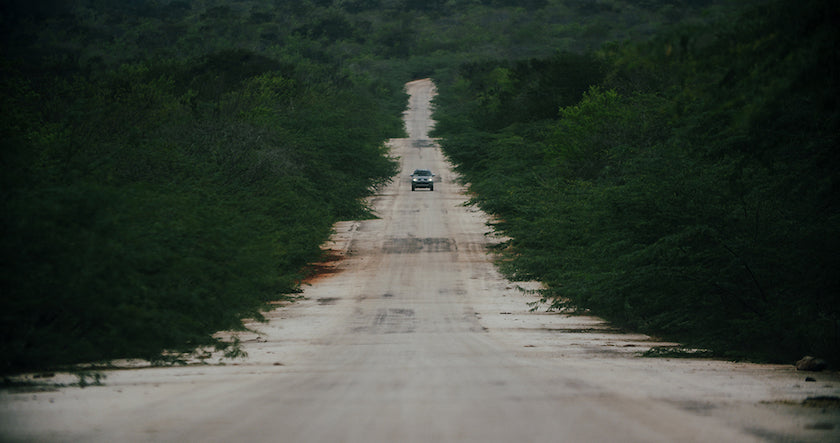
Ripe for Exploitation
An environmental emergency is surfacing in the Dominican Republic as illegal avocado growers exploit a biosphere reserve
The cornerstone of brunch and ubiquitous in trendy cafés, the avocado's climb to stardom this millennium has been of Biblical proportions. They evolved to become a mainstream staple on the kitchen tables and in cosmetics, but a consumer hunger has shed light on an environmental emergency unfolding across some of the world's most biodiverse forests.
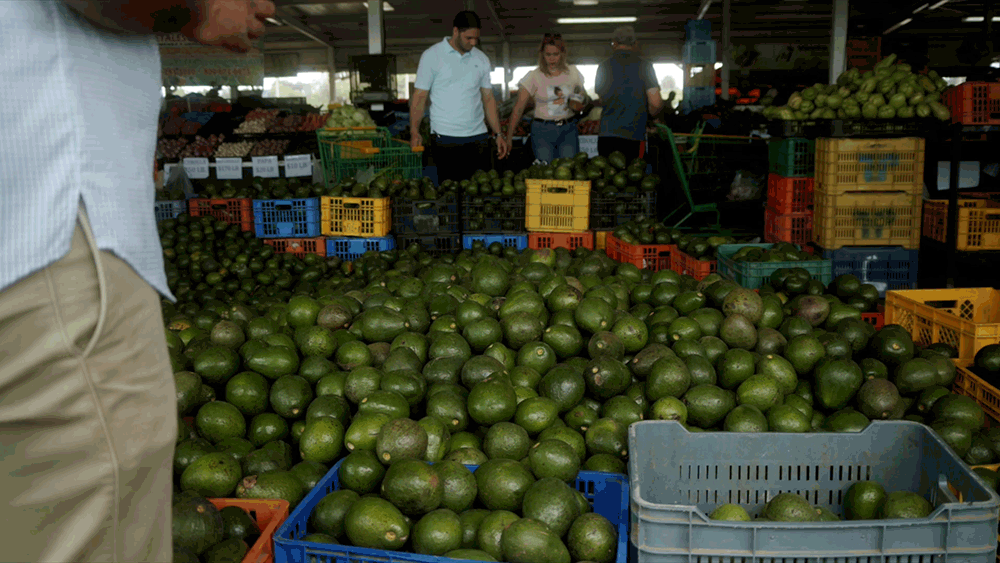
One of the worst droughts in over three decades has driven illegal avocado farmers into protected ecosystems in chase of more moist climates for the water-guzzling plant. (Image: White Horse)
What is the true cost of an avocado, or at least the production of one? Since 500 B.C. avocados have been part of Latin American diets. Although they are now grown in parts of Asia and the Mediterranean, the world's biggest producers are found in Central America. The avocado tree, due to its characteristics, demands a mammoth amount of water to produce its fruits, which results in scarcity of water in the surrounding nature. When farms are erected, they have a devastating impact on the local water supplies. The landscape of the Dominican Republic, which only sits behind Mexico in terms of production, is changing at an alarming rate from avocado agriculture. Unregulated farmers are exploiting Sierra de Bahoruco and its UNESCO protected forest.
Until the illegal practices are denounced on a governmental level, there is a growing danger that the ecosystem could be whipped off the face of Earth
Wilderness explorer and writer Mario Dávalos, CEO of Capital DBG, has been documenting the ravaging consequences of the fruit in the Dominican Republic. "These avocados, grown within the last cloud forest of Hispaniola, are blood avocados: they perpetuate poverty, they eliminate rivers, they threaten the wellbeing of thousands of people," he explains to us. Awareness around 'blood avocados' was investigated by The Guardian in 2016. Reporting from Mexico, they noted how the industry propelled both illegal deforestations and extortion of farmers, in many cases by the drug cartels. Some journalists have compared the industry to African's 'blood diamonds.'
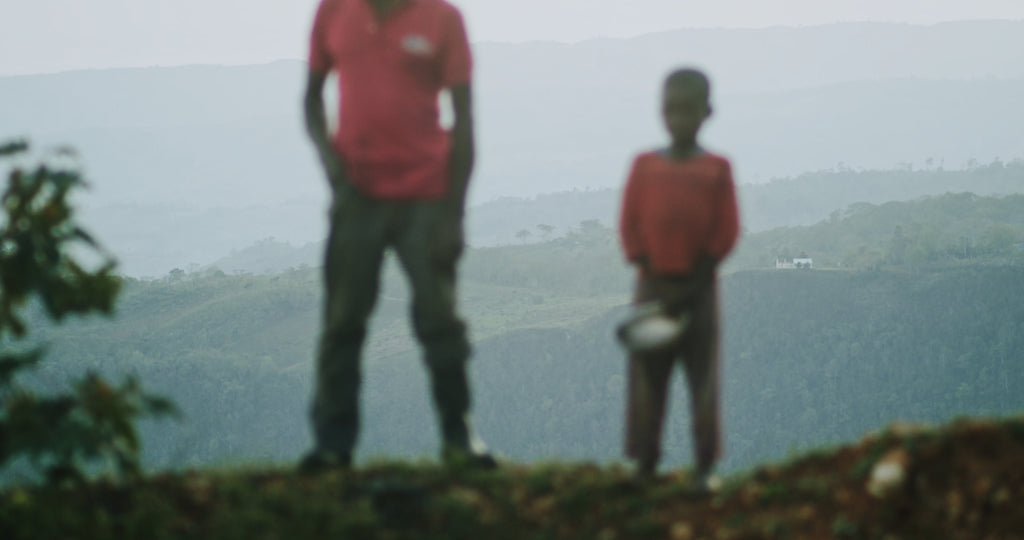
'Avocado Rise' is a non-profit collaborative documentary reporting on the developing environmental problems in the Sierra de Bahoruco, Dominican Republic. (Image: White Horse)
The non-profit 'Avocado Rise' project reports on the growing environmental problems in the Sierra de Bahoruco, located in the Dominican Republic and classified as a Biosphere Reserve by UNESCO. Under attack from illegal avocado farmers and charcoal production, they are crippling one of the most biodiverse forests in the world.
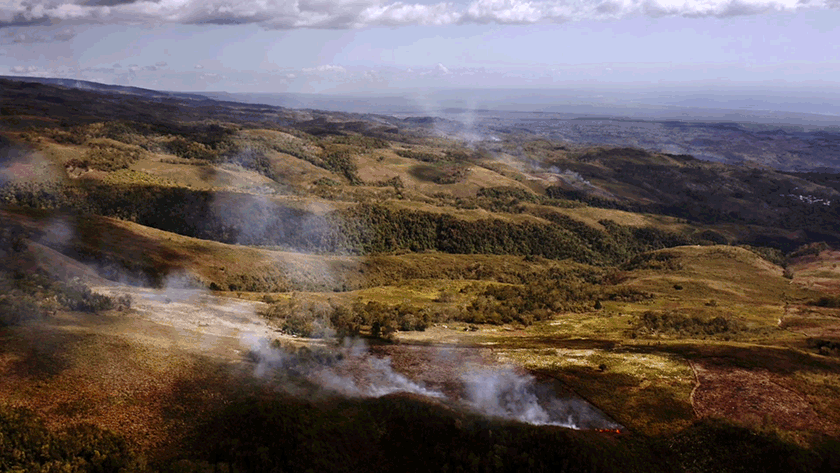
Dominican activist and reporter Mario Dávalos worked with Folch and Tropicfeel to create a short documentary film that highlights the crisis developing in the mountains. (Image: White Horse)
“Land grabbing for individual profit inside natural parks has become a common activity in the Dominican Republic, in many cases overseen by the government," argues Bernat Mestres, director of 'Avocado Rise.' Uncontrolled production is shedding light on how vulnerable these ecosystems are, which is why it wants a more conscious consumption of avocado and its production.
In 2016, the world produced 2.6 times as many avocados as it did in 1997. A recent obsession with delectable damage, Dávalos says the "political class, both government, and opposition have completely ignored this topic." Earlier this month Luis Abinader won the presidency in the Dominican Republic. An economist and tourism industry leader, Abinader failed to mention illegal farming or the exploitation of the land once during his campaign. Dávalos is concerned that the vast majority of Dominicans know nothing about Sierra de Bahoruco, which is perhaps why there isn't mainstream outrage. He believes this is a humanitarian issue, "we need controversy, we need to have this conversation, we need people and businesses and governments to get involved and realize the seriousness and gravity of this situation."
The illegal farming and deforestation of the reserve are contributing to a water deficit, several river channels in the mountains have completely dried up
The problem lies in the country's financial reliance on the trade of avocados. Dávalos argues that while the Dominican Republic benefits from the export of avocados, the government is unlikely to take action against illegal exploiters. Complying with the law and protecting natural resources has completely diminished in the past five years. President Abinader is a "businessman, who operates a cement plant also within a National Park (Parque Nacional Caamaño) and he faces very difficult times ahead," Dávalos says. Until the illegal practices are denounced on a governmental level, there is a growing danger that the ecosystem could be whipped off the face of Earth.
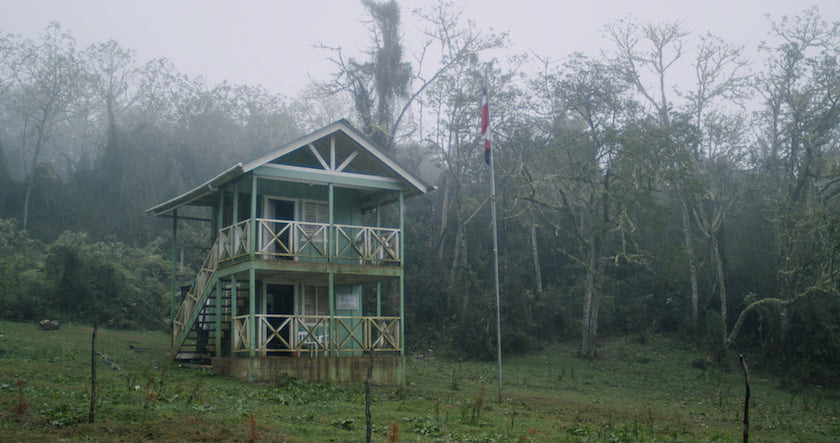
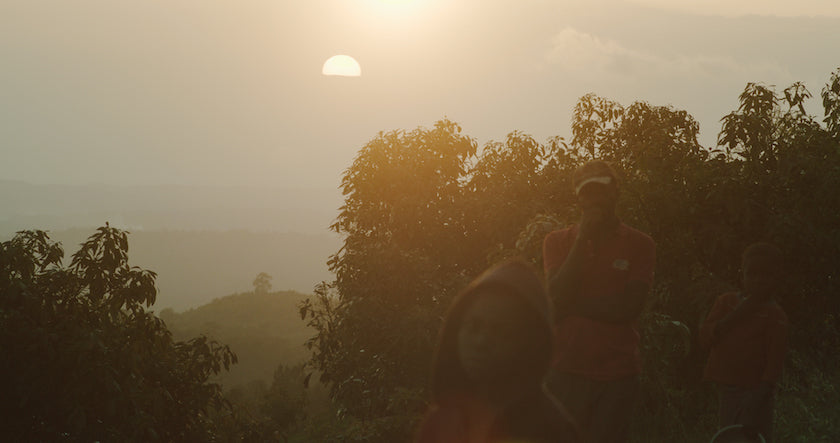
"I have this huge sense of tragedy and urgency. We have time to act, but not much time. Environmental consciousness is very disconnected from politics, but I see a clear change in new generations," says Mario Davalos. (Image: White Horse)
This shift is being escalated at an alarming rate because of climate change, plus the Dominican Republic facing its most severe drought in over 30 years. As the lower altitudes dry out from drought, illegal farmers have been heading higher into the mountains for more moist conditions. The illegal farming and deforestation of the reserve are contributing to a water deficit, several river channels in the mountains have completely dried up and are showing signs of a crisis in the region. For years this fell on silent ears, which pushed Dávalos to create ‘Avocado Rise,’ a film with Folch, Tropicfeel, and Eldorado Experience. When asked what sort of reaction the film will spark both inside and outside the Dominican Republic, he answers:
“I love that you ask me this because I feel this is what needs to happen to achieve change: to create pressure on the buyers, on the demand, both in countries and governments importing the avocados and consumers. We need to attack this issue where its interests lie: money. These are blood avocados, there is no doubt in my mind. And most of it ends up in Europe. I would like European consumers to understand that they are eating away more than they realize. Every time we export an avocado grown in the National Park, we are exporting water, biodiversity, sustainability… and this is what’s on your toast.”
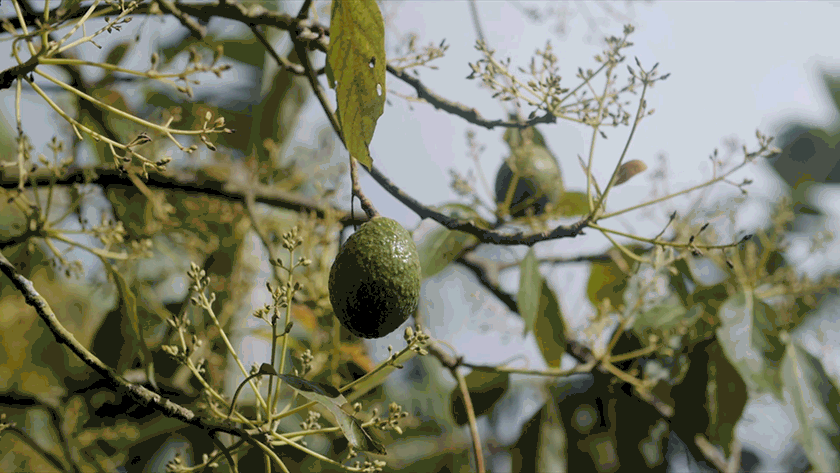
One of the most biodiverse forests in the world is under attack from illegal growers who are burning enormous plots of land to grow avocado plants, they are also redirecting water supplies which is resulting in the drying up of several rivers in the region. (Image: White Horse)
Environmental groups are challenging the government's inaction to protect the UNESCO site. They accuse them of "collaborating with growers in the construction of roads to the plantations. The environment ministry, a former agriculture minister, denies the damaging effect of avocado cultivation. Other government sources sell avocado farming as reforestation of damaged areas."
“Brands (like people) must lay aside their fears and denounce what they don’t like. This is a show of strength,” says Albert Folch, founder of Eldorado Experience. Transparency over the production of avocados is needed on a global scale. As demand shows no sign of slowing down, the production is becoming so vast and unregulated that communities and landscapes are being raged with havoc. The succulent avocado has become a poison fruit to the tropical climates and economies of Latin America, without statutory regulations they will continue to destroy some of the most biodiverse reserve ecosystems in the world.
Watch the short documentary film in full.

